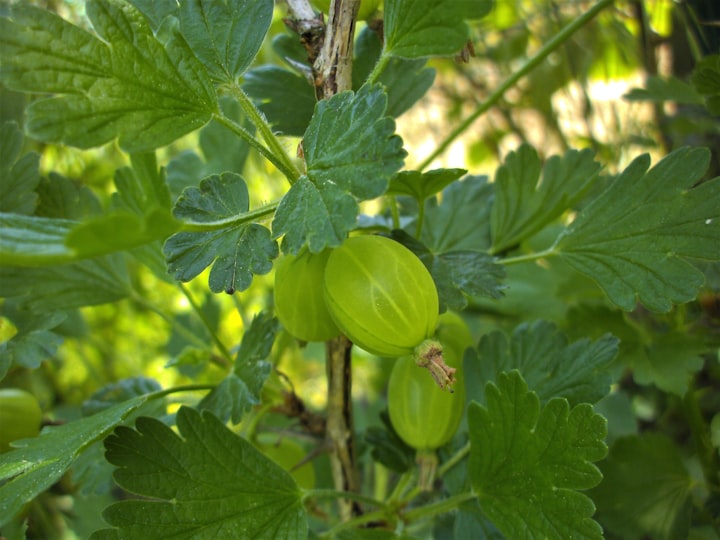Chewing the gooseberry well on the teeth is great for the teeth
gooseberry
While there is no scientific evidence specifically supporting the idea that chewing gooseberries is great for the teeth, it's worth noting that certain fruits, including gooseberries, can have benefits for oral health.
Gooseberries are a good source of vitamin C, which is essential for the health of your gums and teeth. Vitamin C helps in the formation of collagen, a protein that supports the structure of teeth and gums. Additionally, the act of chewing fruits can stimulate saliva production, which is important for maintaining oral health. Saliva helps neutralize acids in the mouth, wash away food particles, and promote remineralization of tooth enamel.
Chewing gooseberry (amla) thoroughly can indeed offer oral health benefits. Gooseberries are rich in vitamin C, which is known for its antioxidant properties. These antioxidants can help combat free radicals and reduce oxidative stress, contributing to overall health, including the health of your teeth and gums.
Chewing gooseberries well can stimulate saliva production. Saliva is essential for maintaining oral health as it helps neutralize acids, cleanse the mouth, and remineralize tooth enamel. Adequate saliva flow is crucial for preventing tooth decay and maintaining a healthy oral environment.
Gooseberry, also known as amla in some regions, is a small, round fruit that comes from the Phyllanthus emblica plant. This plant is native to India and is cultivated in various other countries with tropical and subtropical climates. Gooseberries are known for their rich nutritional profile and health benefits.
Here are some key features of gooseberries:
Nutritional Content: Gooseberries are a rich source of vitamin C, containing more of it than many other fruits. They also contain other essential nutrients such as vitamin A, potassium, calcium, and antioxidants.
Antioxidant Properties: The high antioxidant content in gooseberries helps combat oxidative stress in the body. Antioxidants play a role in neutralizing free radicals, which are molecules that can cause cell damage and contribute to aging and various diseases.
Health Benefits: The consumption of gooseberries has been associated with several health benefits, including boosting the immune system, improving digestion, promoting hair health, and supporting skin health.
Traditional Medicine: In traditional Ayurvedic medicine, gooseberries have been used for various medicinal purposes. They are believed to have rejuvenating properties and are used in herbal formulations for a range of health conditions.
Culinary Uses: Gooseberries can be consumed fresh, and they have a tart and tangy flavor. They are also used in various culinary applications, such as making jams, chutneys, and pickles. In some cultures, dried or candied gooseberries are popular snacks.
Oral Health: As mentioned earlier, chewing gooseberries is believed by some to have oral health benefits. The act of chewing may stimulate saliva production, and the vitamin C content could contribute to gum health.
Gooseberries are small, round to oval berries that come from the gooseberry bush, a deciduous shrub belonging to the Ribes genus. These berries are typically green or red when ripe and can have a tart or sweet taste, depending on the variety. Gooseberries are native to Europe, Asia, and North Africa.
Key features of gooseberries include:
Flavor: The taste of gooseberries can vary, but they are generally tart or sour, especially when they are not fully ripe. Some varieties can be sweet when fully ripe.
Nutrients: Gooseberries are a good source of various nutrients, including vitamin C, vitamin A, potassium, and dietary fiber. They also contain antioxidants, which can be beneficial for overall health.
Uses: Gooseberries can be eaten fresh, although their tartness might make them more suitable for culinary uses. They are commonly used in jams, jellies, sauces, desserts, and beverages. In some cuisines, they are also used in savory dishes.
Health Benefits: The vitamin C content in gooseberries makes them beneficial for skin health, immune system support, and collagen synthesis. The antioxidants in gooseberries may also contribute to overall health.
Cultivation: Gooseberry bushes are hardy and can thrive in various climates. They are often grown in home gardens and are available in different cultivars.
It seems like your inquiry is related to teeth. If you have a specific question about teeth or dental health, feel free to ask, and I'll do my best to provide helpful information. Whether you're interested in dental care tips, information about specific dental conditions, or any other related topic, I'm here to assist you.
About the Creator
worldjoker
writing the content






Comments
There are no comments for this story
Be the first to respond and start the conversation.